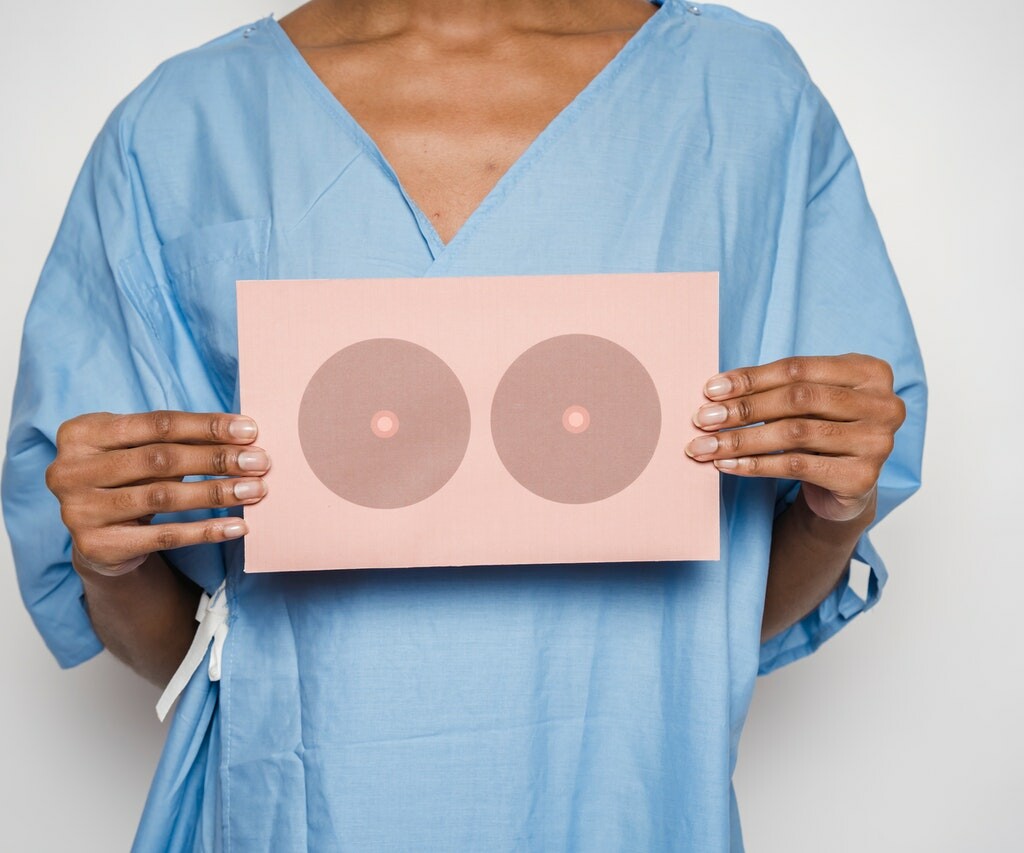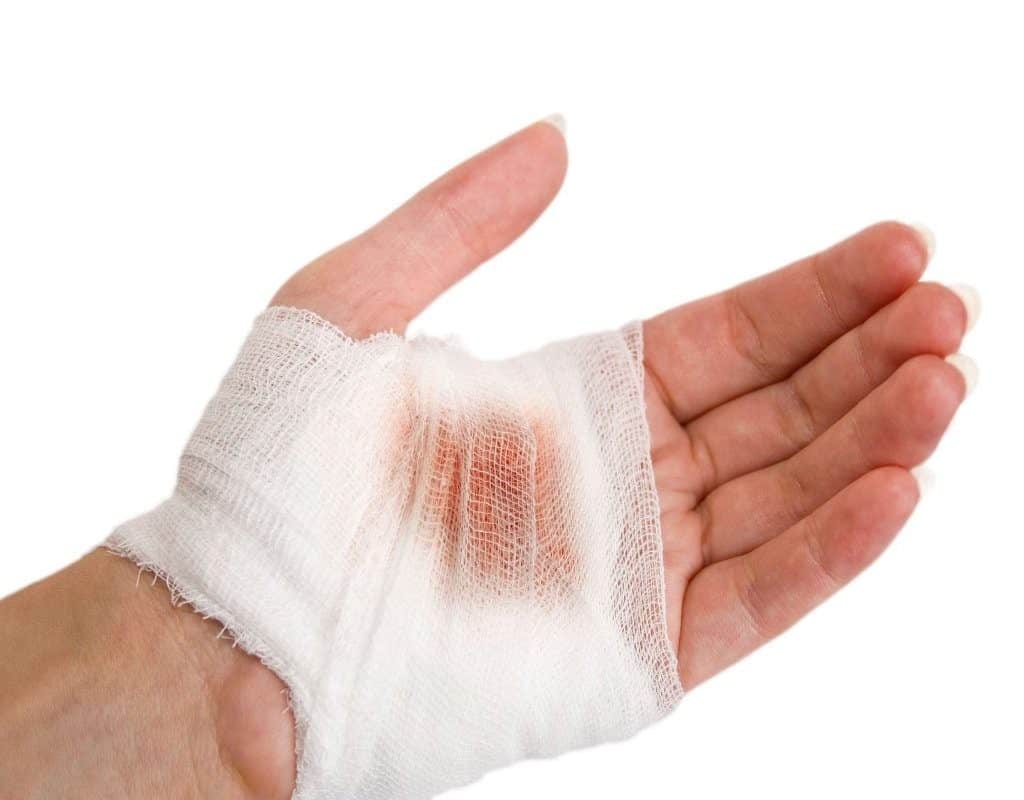When addressing breast health, we find ourselves at the intersection of the physical and emotional body. This article explores how conflicts within the family core and personal relationships can manifest in breast well-being.
Emotional Conflicts and Their Impact on Breast Health
Breasts, emblematic of femininity, maternity, and family obligations, symbolize much more than physical attributes; they embody the core of the maternal function, which encompasses nurturing, protecting, and educating offspring.
This responsibility extends not only to direct care in a physical environment such as the home—be it a house, an apartment, or a building—but also in a broader sense that includes warmth, the family atmosphere, and belonging to a clan or community.
Breast health can be deeply affected by emotional conflicts, particularly those anchored in the domestic environment.
These conflicts generate anxiety that permeates all members of the household, including children, parents, grandparents, close relatives, intimate friends, pets, and often, the child or spouse, whether in a real or symbolic context. Among the most common causes of this anxiety are:
- Conflicts related to children, such as accidents, illnesses, deaths, bad influences, not knowing their whereabouts, misunderstandings and unemployment, among others.
- Problems associated with the spouse or partner, including depression, alcoholism, absence, unemployment, illness, accidents, death, etc.
- Conflictive situations in the home, such as separations, divorces, domestic violence, economic difficulties threatening family livelihood, feelings of threat or danger, lack of cohesion or protection, among others.
Analysis of Breast Affliction
The question of which breast is affected—whether the left, the right, or both—can reveal the nature of the underlying emotional conflict.
If the conflict is directly related to the child, whether real or symbolic (considering as a child a spouse, another person, an animal, or any entity cared for and protected with that level of dedication), it usually manifests on one side. This represents a direct conflict between the mother and the child.
On the other hand, if the emotional conflict extends to other members of the family or household, such as the spouse, partner, parents, grandparents, other relatives, or close friends, then the impact can be more generalized.
The affliction of one breast or the other, or both, will depend on whether the conflict is perceived as a matter limited to the nuclear home or extends to a broader concept of family or community.
Understanding Home Conflict in the Context of Breast Health
The nature and location of breast health issues can reveal details about a person’s underlying emotional conflicts.
A crucial aspect in understanding these conflicts is to distinguish between a strict “nest conflict” and an expanded one, which directly depends on the biological laterality of the affected person—that is, whether they are right-handed or left-handed.
- For right-handed women, an affliction in the left breast indicates conflicts related to the home in a strict sense, while problems in the right breast suggest an expanded nest conflict, encompassing a wider range of relationships and emotional situations.
- In the case of left-handed women, this interpretation is reversed: afflictions in the right breast point to strict nest conflicts and in the left breast to expanded nest conflicts.
The Significance of Breast Quadrants
The location of the problem in specific quadrants of the breast provides a deeper understanding of emotional conflicts.
By dividing the breast into four quadrants using two lines that cross the nipple, one horizontal and the other vertical, areas are identified that symbolize different aspects of interpersonal relationships:
- The upper part: represents the capacity and willingness to give and care for others.
- Lower part: symbolizes emotional needs and what is expected to be received from others.
- Outer part: relates to conflicts derived from relationships with other people.
- Inner part: personalizes internal conflicts or the need for maternal care.
Interestingly, most breast conditions are located in the upper outer quadrant, near the armpit, indicating conflicts related to giving and external relationships.
Analysis of Affected Tissues
The type of breast tissue affected can offer additional clues about the nature of underlying conflicts:
- Mammary Glands: responsible for the production and secretion of milk, when affected, can symbolize conflicts related to the act of nurturing and perceptions of danger in the family environment.
- Deep emotional conflicts and feelings of insecurity in the home setting can manifest through various breast conditions, including the development of benign masses such as adenomas or adenocarcinomas, which are among the most common types of cancer.
This approach underscores the importance of addressing emotional and psychological aspects in the treatment and understanding of breast diseases, emphasizing a comprehensive view of health that considers both physical and emotional well-being.
Interpretation of Emotional Conflicts Based on the Affected Breast and Laterality
Understanding the emotional conflicts that can affect breast health is deepened by considering the biological laterality of the woman, that is, whether she is right-handed or left-handed. This provides a unique perspective on how internal tensions and concerns manifest in specific physical issues in each breast.
For the Biological Right-Handed Woman
Left Breast: represents conflicts closely linked to the mother-child relationship or what is called a strict nest conflict. This type of conflict encompasses situations in which the woman feels responsible for something or someone, including:
- The need to intensely protect or care.
- Deep concerns for the well-being of her children and their actions.
- The desire to offer more of herself.
- Problems related to the ability to maintain, organize, or even form a home.
Right Breast: is associated with conflicts related to figures who assume maternal roles, but who are not the biological mother, such as:
- The romantic partner.
- Siblings who take on caring roles.
- Adult children who adopt a protective role.
- Friends, colleagues, or close relatives who play a significant support role.
For the Biological Left-Handed Woman
The interpretation is reversed:
- The right breast is associated with strict nest conflicts, reflecting primary concerns and responsibilities related to the care and protection of loved ones.
- The left breast indicates conflicts with the partner or with those who play alternative maternal roles.
Understanding Specific Conditions
- Mastitis and abscesses: are interpreted as intense emotional conflicts exacerbated by situations of dishonor or shame in the context of the home.
- Galactophorous ducts and ductal cancer: the galactophorous ducts, which transport milk from the mammary glands to the nipple, can be affected by ductal cancer. This suggests a deep conflict related to the act of nurturing and the emotional dynamics at home.
This comprehensive approach underscores the importance of addressing not only the physical aspects of breast health but also the emotional and psychological ones, offering a more complete perspective on women’s well-being.
By recognizing and treating these underlying conflicts, a more holistic and profound healing can be fostered.
Relational Issues at Home and Their Effect on Breast Health
Emotional conflicts arising from relational problems at home can have a significant impact on breast health, reflecting a profound dimension of the connection between emotional and physical well-being.
These issues often manifest as separation conflicts, which, though not necessarily sexual, are closely related to the mother-child dynamic.
Right Breast: Separation Conflicts in Partner Relationships
For the right breast, emotional conflicts are primarily associated with partner relationships and can include situations such as:
- The departure or absence of the spouse creates an emotional void.
- Feelings of betrayal or loss due to a third party.
- An explicit desire for separation, reflecting the intention to cut the emotional bond and support (“emotional nourishment”) towards the partner.
- Sensations of loneliness and abandonment, are exacerbated by the lack of support, communication, affection, and attention from the partner.
These separation conflicts highlight the emotional pain and disconnection in intimate relationships, underlining the need for support and mutual understanding for emotional and physical well-being.
Left Breast: Relational Issues in the Home
Regarding the left breast, problems are more centered on the sphere of the home and family relationships, particularly with children. These can manifest through:
- A physical or emotional separation from the child, whether real or perceived.
- Difficulties in communication or mutual understanding.
- Dramatic conflicts in the family environment disturb the sense of security and protection.
- A lack of physical and emotional connection, such as absence of contact, affection, communication, and security among family members.
- Challenges in maintaining a close and protective relationship with loved ones are reflected in the desire to keep them under personal care.
Additionally, conditions of the dermis, such as spots symbolizing conflicts or “dirt,” and melanoma, may represent attacks on personal integrity and self-esteem, linked to these emotional conflicts.
These patterns indicate how relational problems at home, whether with a partner or with other family members, can deeply influence physical health. They underscore the importance of addressing these emotional conflicts to promote a state of comprehensive well-being, recognizing the interconnection between emotions, personal relationships, and bodily health.
Internal Conflicts and Their Influence on Overall Health
Emotional conflicts and their manifestation in physical problems reflect the complexity of the relationship between our physical, spiritual, and emotional health.
These conflicts can arise from perceptions of disfigurement or dissatisfaction with one’s own body, such as the case of breasts considered insufficient or the presence of scars. These concerns may be linked to stress situations at home, like disorder, dirtiness, or even theft, symbolizing a “contamination” of the safe personal space.
Specific Conflicts and Their Interpretation
- Nervous Sheath: contact conflicts represent the aversion to maintaining physical or emotional relationships that are perceived as uncomfortable or painful. This can manifest in the desire to avoid physical contact or intimacy.
- Neurinoma: specifically, the rejection of contact by a partner or other people, reflects a deep need for personal space and respect for autonomy.
- Support Tissue: issues in this tissue can symbolize the perception of a lack of emotional or physical support from significant figures, like the spouse or mother. This situation can lead the individual to feel the need to be emotionally self-sufficient and strong in the face of loneliness or lack of solidarity.
Restoring Overall Health
To restore balance and health in all these aspects, an approach of personal empowerment and self-discovery is suggested.
It is essential to move away from roles of complacency or subordination and embrace one’s power and autonomy. This process of personal empowerment involves finding and following one’s path with integrity and authenticity.
The act of giving to others and nurturing should come from a place of love, joy, and genuine willingness, rather than being a response to external demands. It is important to recognize that each individual has their purpose and path, which doesn’t necessarily include constantly caring for others at the expense of their well-being.
Moreover, maternal love is not only expressed through care and protection but also by allowing the freedom and independent development of children. Part of this journey can also involve forgiveness, both towards oneself and parental figures, recognizing the importance of self-love and self-care.
In summary, the recovery of health in all its aspects requires a deep commitment to one’s well-being, respect for personal autonomy, and the ability to establish healthy boundaries in relationships. This holistic approach not only promotes physical healing but also spiritual and emotional growth.




